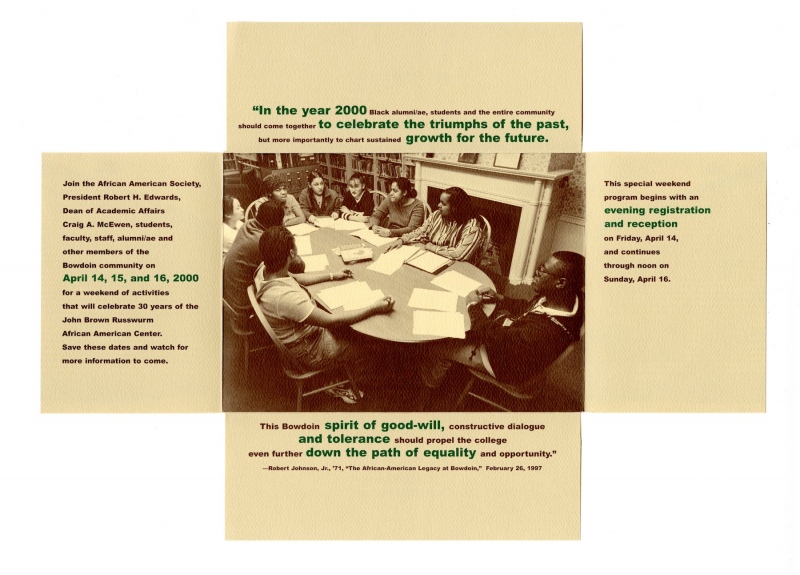For nearly forty years, the College failed to sustain more than one full-time appointment in Africana Studies, which had immense implications for students’ ability to complete the major, the available mentorship for black students, and on the advisorship of the African American Society. Randy Stakeman was the final professor to maintain all of these roles at once, in addition to serving as associate dean of the faculty and overseer of Bowdoin’s Mellon Mays program. Upon Stakeman’s retirement in 2006, President Barry Mills determined to focus the College’s recently-launched capital campaign, at least partly, on raising funds to establish four additional Africana Studies professorships. Due in part to this investment, the program is stronger than it has ever been. With the celebration of the program’s 50th anniversary, it is important to remember that this strength is both recent and long-fought-for—not just in these fifty years, but in Bowdoin’s longer history of racism and slow change.
Reflections at 30
The 30th Anniversary commemoration—a weekend of programming and celebration for alumni, students, and black scholars, centered mostly on the Russwurm Center. Since the last anniversary, the program had been renamed to Africana Studies, codifying its increasingly inclusive, diasporic curriculum. It had also undergone internal and external uations which called on the College to invest more resources into recruiting black faculty, which it was still struggling to do by the thirtieth anniversary. And that year, the College would matriculate just sixteen students of color to the class of 2004.
